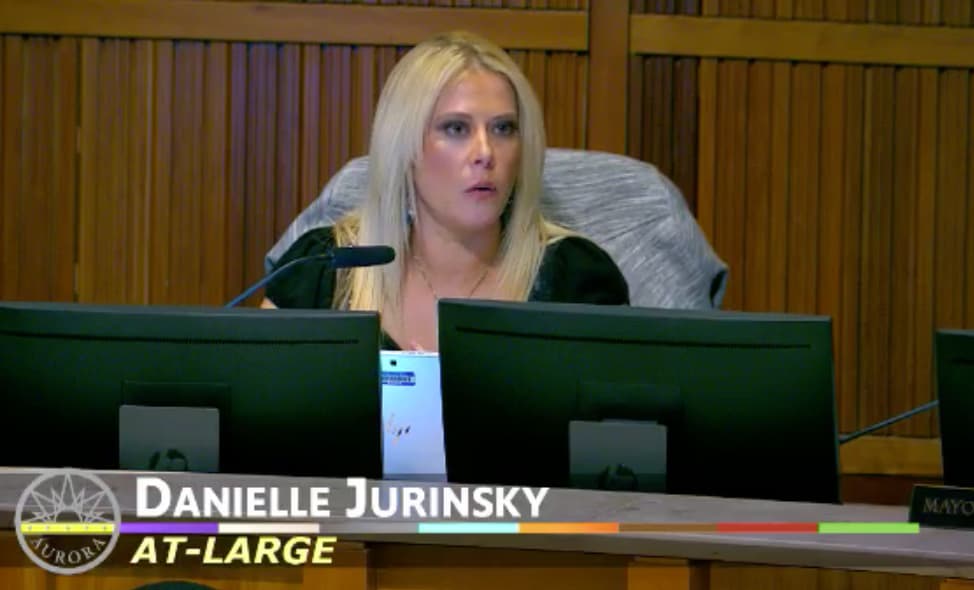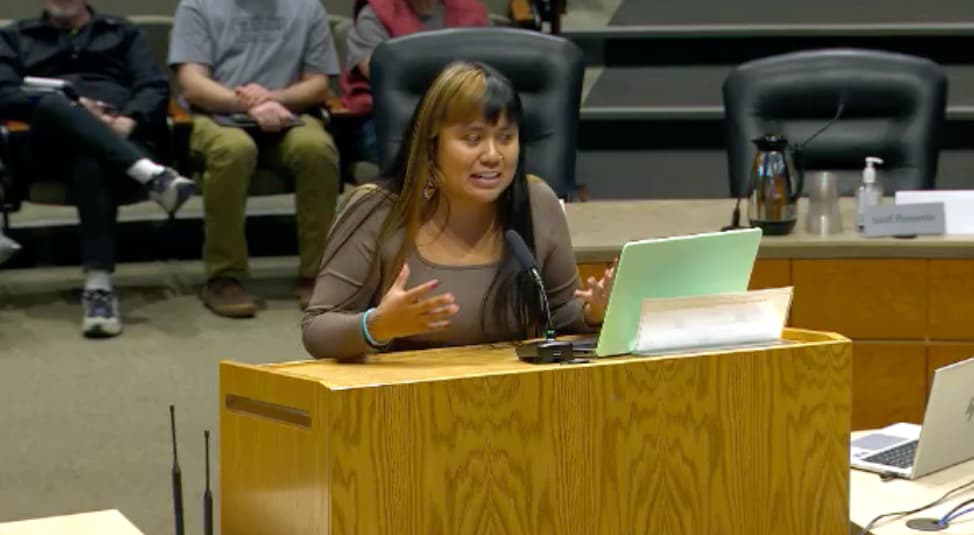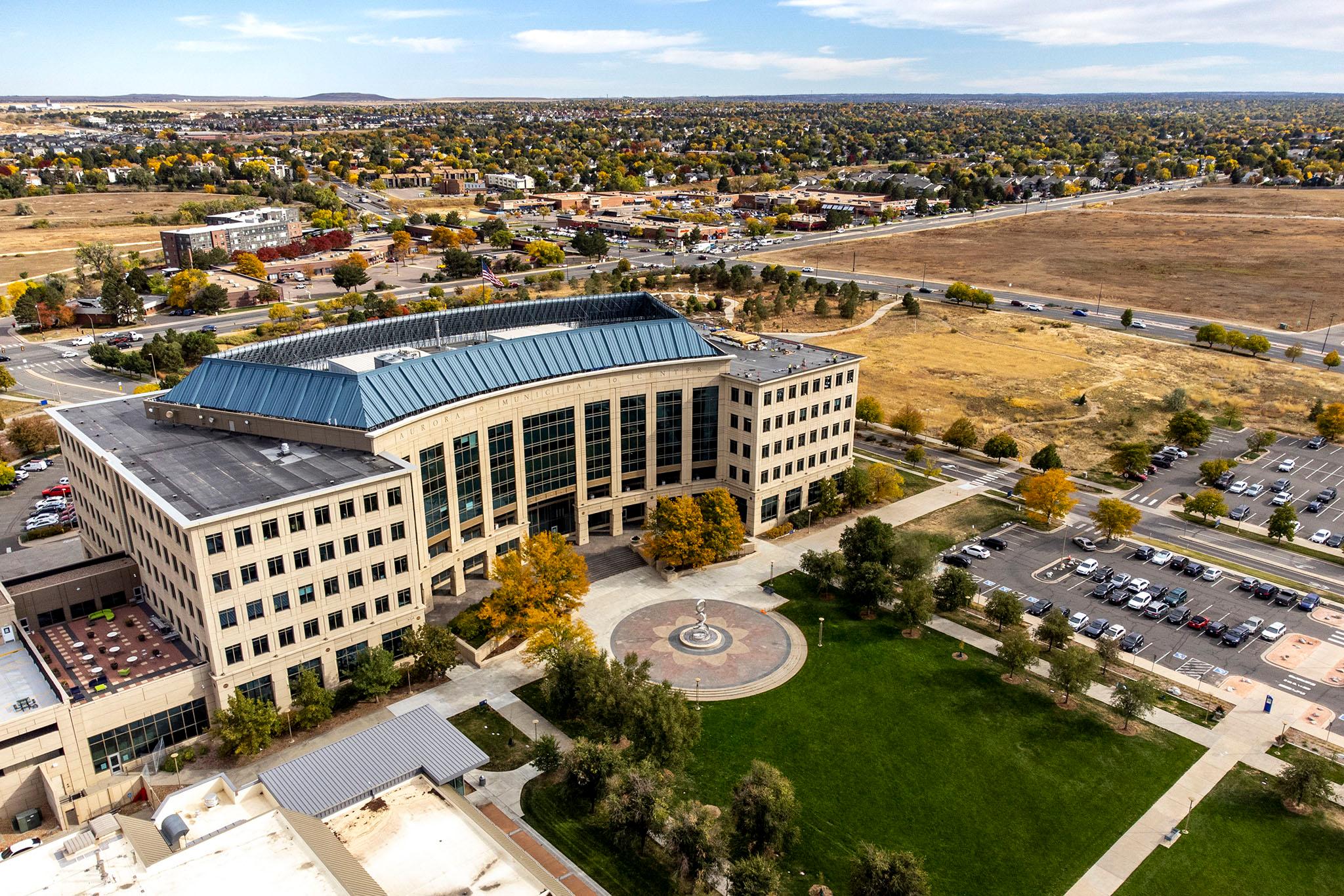By Kristin Oh/Sentinel Colorado
Amid sometimes stinging public criticism from community members and local organizations, the Aurora City Council approved a resolution that symbolically prevents an influx of migrants from coming into the city from Denver.
The resolution approved Monday night by a 7-3 vote was scaled back from an earlier version made public last week, which drew a sharp rebuke from activists from homeless and immigrant communities.
The approved measure states that while "Aurora is proud of its identity as the most diverse and global city in the state," the city cannot finance an influx of migrants and homeless people that are being "systematically" transported into the city.
City Council members Francoise Bergan, Curtis Gardner, Stephanie Hancock, Danielle Jurinsky, Angela Lawson, Steve Sundberg and Dustin Zvonek voted for the resolution. Council members Alison Coombs, Ruben Medina and Crystal Murillo voted against it.
Jurinsky, Lawson and Bergan all said that they were prompted to support the measure after news that Denver was having to scale back city services after spending millions on caring for a wave of immigrants over the past year. Some Denver estimates say upwards of 40,000 immigrants have come to Denver since last January. Many were bused here from Texas by officials there, Denver officials have said.
City officials have not reported how many of the recent immigrants are now living in Aurora. Local school districts, however, have reported at least a few thousand children from immigrants attending schools.

Proponents of the Aurora resolution say they did not want Aurora to be forced to cut city services, such as recreational centers, because the city has to re-allocate money to support migrants.
"We owe it to the residents to make sure that we have adequate services," Lawson said. "We're already stressed as it is."
Ryan Luby, spokesperson for the city, previously told The Sentinel that Aurora "is not structured or funded to provide health and human services to the community. Those services are provided by each of the counties in which Aurora is located."
Luby also said that there are no "city-owned shelter spaces or related infrastructure for migrants in Aurora...The city is not aware of other shelters for migrants in Aurora, nor is it providing funding to them." However, the city does financially support two homeless organizations: Comitis receives $482,000 and Aurora Day Resource Center receives $200,000.
The resolution elicited strong criticism from the public Monday.
Representatives from the Colorado Immigrant Rights Coalition, Nadya Benitez, Dylan Mori and Q Phan, spoke against the resolution.
"[Aurora] is a city of immigrants. We love the cultures. We love the food. We love the multitude of languages that are spoken," Mori said, mocking city lawmakers behind the measure. "If you have so much love for the culture, where is the love for the people?"
Julian Camera, community organizer with American Civil Liberties Union of Colorado, said the resolution "is concerning both morally and legally."
Others accused the city council of having racial biases. Only two community members spoke in favor of the resolution, with one man stating that the city cannot financially feed everyone.

Critics on the dais and in the audience accused council proponents of tokenizing the immigrant community while making arguments for the resolution.
Coombs said that the language in the resolution was reminiscent of Trump-era anti-immigration language, and that people can "say all they want about this resolution not being harmful to immigrants, but immigrants are telling you that you're wrong."
Jurinsky refuted Coombs' claims, saying that upset immigrants spoke with her about their frustrations of living in the U.S. and wanting the wave of primarily Venezuelan immigrants to return to their home countries.
Sundberg acknowledged that the U.S. is a nation of immigrants and spoke about his wife, who immigrated from Rwanda.
Murillo and Medina said they were worried about the messaging of this resolution. Murillo said she's concerned that this will spread a narrative of fear and pit marginalized groups against one another. Medina said that nonprofit organizations asked him if they needed to move their operations out of the city.
Medina also reiterated that this is a federal issue.
"These things don't always need to be pushed forward because we weren't doing anything to begin with," he said. "We should be...helping these communities so that we can get the resources we need so we're not relying on city resources.
Council proponents and opponents stipulated that the resolution has no enforceable provisions.













